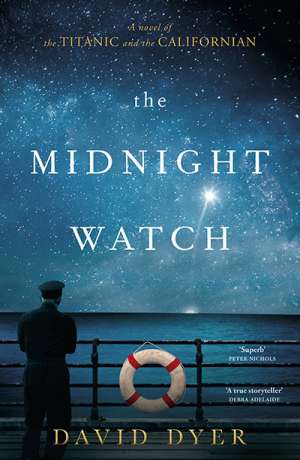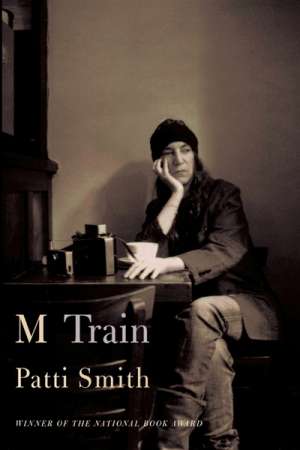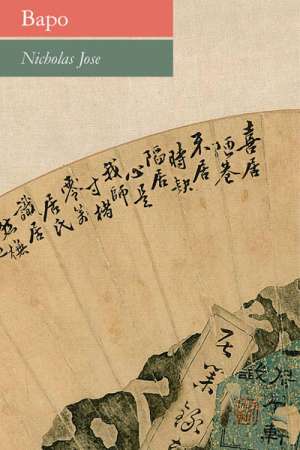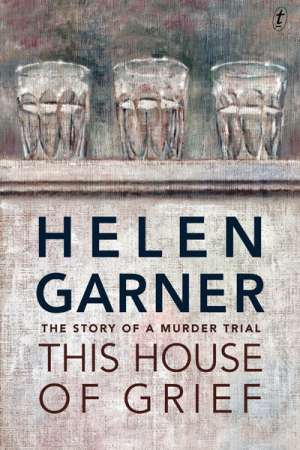Felicity Plunkett
Felicity Plunkett reviews 'The Midnight Watch' by David Dyer
Two headlines, a day apart, evoke the confusion surrounding the fate of the Titanic in April 1912. New York's Evening Sun reported, 'ALL SAVED FROM TITANIC AFTER COLLISION'. Twenty-four hours later, The Boston Daily Globe added: 'TITANIC SINKS, 1500 DIE.' From there, the sinking of the 'unsinkable' Titanic has been the subject of ...
State Editor's Introduction by Felicity Plunkett | States of Poetry Queensland - Series One
Prismatic and dynamic, Australian Book Review's States of Poetry anthologies are about refraction as well as brilliance, shade and trace as much as what is lit. If anthologies generate disagreement, it is because of an illusion that they set or express the fixed amidst a mobile and vibrant set of practices. The recurring, multifarious nature of States of Po ...
The writer is a conductor, opines the 'vaguely handsome, intensely laconic' cowpoke who speaks to Patti Smith as she lingers at 'the frame of a dream'. His words shape Smith's days. 'It's not so easy writing about nothing,' this companion tells her, and she scratches these words over and over onto a wall in her home with a chunk of red chalk.
...Jennifer Maiden's The Fox Petition: New Poems (Giramondo) conjures foxes 'whose eyes were ghosts with pity' and foxes of language that transform the world's headlines
... (read more)'Sound Bridges: A Profile of Gurrumul' by Felicity Plunkett
Book reviewing and its provocateurs: 'What single development would most improve the Australian critical culture?'
Last month in Melbourne, a group of book reviewers and literary editors took part in a conference organised by Monash University’s Centre for the Book. There were more than thirty short papers, or ‘provocations’, as they were styled. Our Editor lamented the low or non-payment of some reviewers ( ...
A prefatory note to this striking novel tells us that it is Richard Kline’s memoir of ‘a strange event that intervened in my life at the age of forty-two’. The following ‘short history’ interleaves sections of first- and third-person narration, shuffling the pieces of a reflective Bildungsroman that charts Richard’s emergence from a vague but oppressive childhood ‘apprehension of lack’ into something even more elusive.
... (read more)Books of the Year is always one our most popular features. Find out what our 41 contributors liked most this year – and why.
... (read more)In Charles Simić’s book about Joseph Cornell’s assemblages, Dime-Store Alchemy (1992), he quotes his own translation of Croatian poet Slavko Mihalić to describe Cornell’s sculpture ‘Deserted Perch, 1949’, noting ‘the very tiny crack in which another world begins and ends’. Simićmarvels at this ‘Illusionist art ... sleight of hand’.
In the absorbing introduction to the stories in Bapo, Nicholas Jose describes bāpò as ‘an unusual kind of Chinese painting that tricks the eye into thinking it sees a collage of fragments’. Under the disguise of collection and assembly, the painter’s hand creates a trompe-l’œil of torn, burnt, pasted fragments. Jose describes his version as assemblage, and like Cornell, who reinvented discarded scraps and oddments, he finds in bāpò an ‘aesthetic of illusion and salvage, of creative retrieval’.
... (read more)Felicity Plunkett reviews 'This House of Grief' by Helen Garner
In August 2013, Robert Farquharson was denied special leave to appeal to the High Court against his conviction for the murder of his three young sons Jai, Tyler, and Bailey, aged ten, seven, and two. This was the final legal chapter in the lengthy story Helen Garner explores in This House of Grief.
Garner begins with the ‘Once’ that prefaces fairy tales – stories we think we know well enough to recite from memory; clear, oracular, and resonant: ‘Once there was a hard-working bloke who lived in a small Victorian country town with his wife and their three young sons.’ One day, ‘out of the blue, his wife told him that she was no longer in love with him’. Transformed by this into ‘the sad husband’, Farquharson packs a suitcase and leaves, saddled with the ‘shit car’ of the two owned by the couple.
... (read more)




